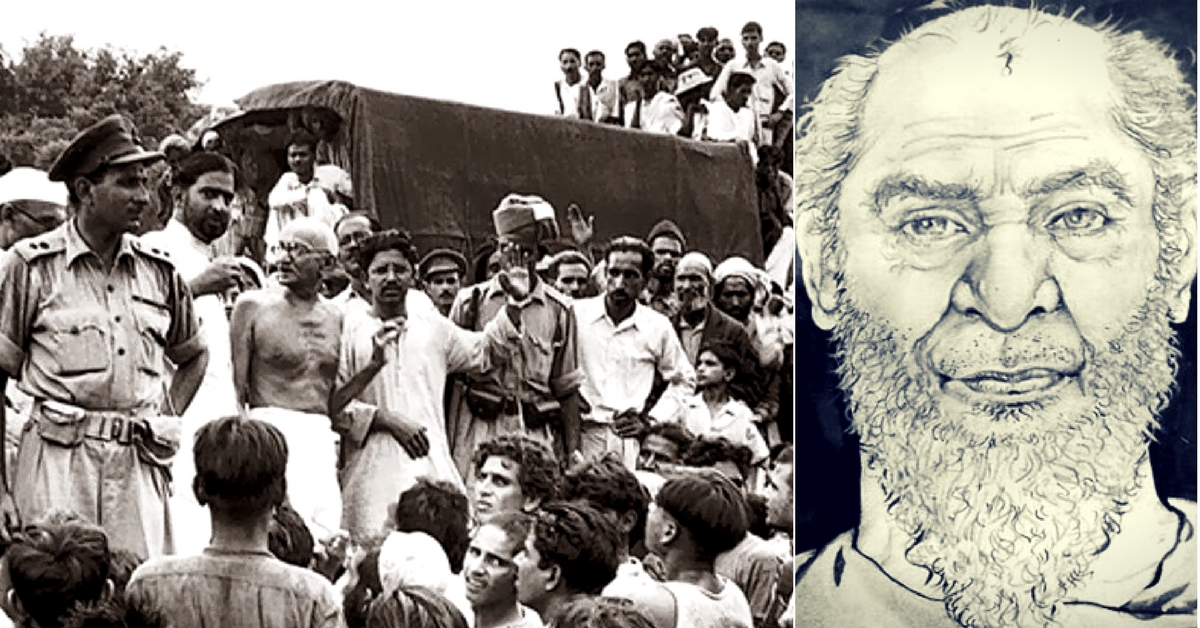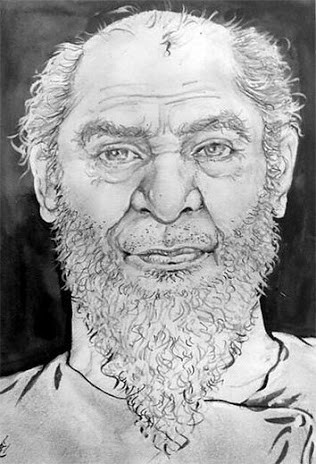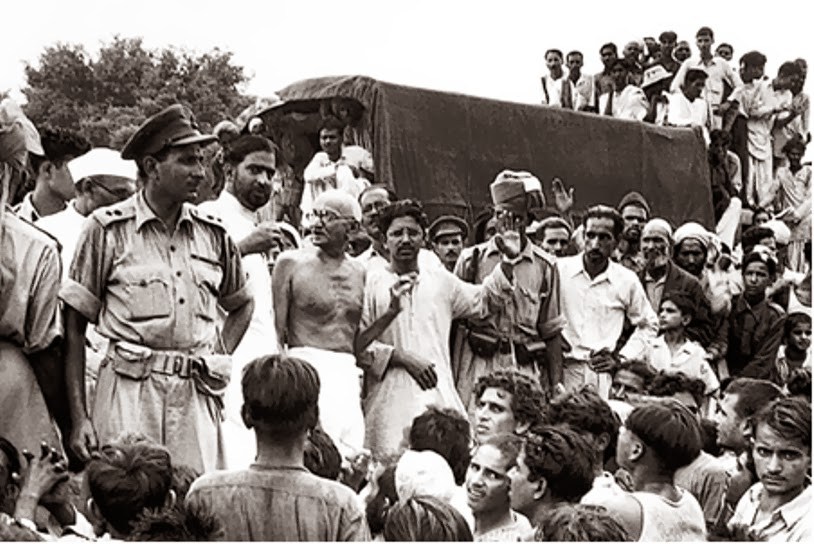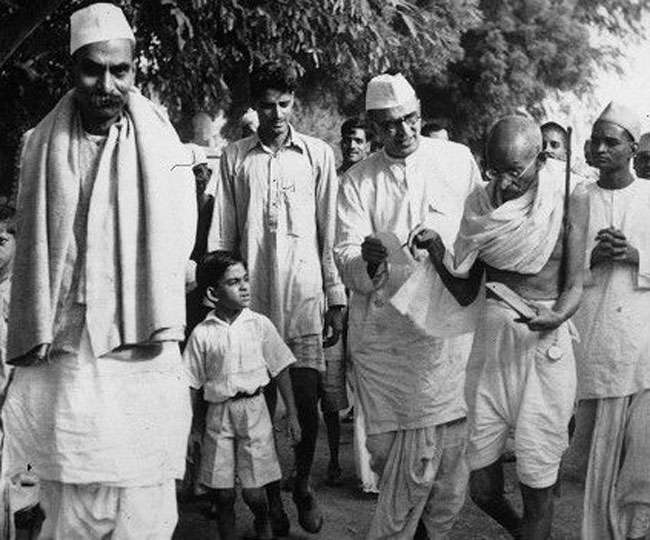The Forgotten Cook Who Paid Heavily For Refusing To Poison Mahatma Gandhi
Few Indians have heard about Batak Mian, the brave cook from Bihar who didn’t just save Mahatma Gandhi’s life but also paid a heavy price for it.

On January 30, 1948, Mahatma Gandhi fell to the three bullets fired by his assassin Nathuram Godse during an evening prayer ceremony at Delhi’s Birla House. A few hours later, Prime Minister Jawaharlal Nehru announced to the world the “light has gone out of our lives”.
Much has been written on Godse and co-conspirator Narayan Apte, who were convicted and hanged for the murder of the Father of the Nation on November 15, 1949. Yet few Indians have heard about the brave cook who didn’t just save Mahatma Gandhi’s life but also paid a heavy price for it.
A resident of Motihari district in Bihar, Batak Mian saved the legendary leader from being poisoned in 1917. Here’s his forgotten story.

The year was 1917. On the afternoon of April 15, thousands had gathered at Motihari railway station (in Bihar’s East Champaran) to wait for a man who was destined to lift their lives out of misery.
It was 3 pm when Gandhi alighted at the station from a train coming from Muzaffarpur. He had come to probe the appalling conditions under which local farmers were being forced by the landlords to grow indigo.
Nobody knew it then but this fact-finding mission would snowball into the first satyagraha (policy of passive political resistance) that Gandhi would lead in the country and begin a new chapter in India’s independence struggle.
According to the book Champaran ke Swatantatra Senani, during this visit, Gandhi got a dinner invitation from a British manager of an indigo plantation named Erwin.
Aggravated by Gandhi’s interference in the workings of exploitative tinkathia system, the Englishman planned to assassinate Gandhi during this dinner.

So Erwin told his cook, Batak Mian, to serve Gandhi a glass of milk laced with poison. To ensure that this was done, he offered substantial inducements as well as issued threats of dire punishment.
When the time came, the deeply patriotic cook did present the glass of milk to Gandhi, but also warned him of its contents and revealed Erwin’s sinister intentions behind it. Dr Rajendra Prasad, who would later go on to become India’s first president, witnessed the entire episode.
While Gandhi escaped the assassination attempt to successfully lead the Champaran Satyagraha, the man who had saved his life had to pay dearly for it. Dismissed from work, Batak Mian was thrown behind bars and tortured. His house was turned into a crematorium and his family was driven out of their village (Siswa Ajgari, a hamlet near Motihari).
With time, his act of bravery was erased from public memory, until 1950, when Dr Rajendra Prasad visited Motihari ( the then-headquarters of an undivided Champaran). As India’s first president alighted at the railway station, he was greeted by a huge crowd that had gathered to welcome him.
Just then, he witnessed a commotion near the entrance as a haggard old man tried to make his way towards him. Recognising him instantly as Batak Mian, Prasad walked up to him, hugged him and escorted him to the dais where he gave him a chair next to his.

To the surprised and curious crowd, the President introduced the man sitting next to him as the person who had saved Mahatma Gandhi’s life. He then narrated the story of how the impoverished cook had turned down all kinds of inducements to poison Gandhi and faced brutal punishment as a result.
Had it not been for Batak Mian, Gandhi would have died, Prasad exclaimed, before wondering aloud what impact such a tragedy might have had on India’s independence. On learning about the hardships faced by the cook’s family, he also ordered the collector of the region to give 24 acres of land to Batak Mian and his three sons as a token of appreciation from the nation.
This incident seared Batak Mian’s story into the memories of Champaran’s residents. However, nearly a century after the Champaran Satyagraha, his grandchildren are still waiting for the government to honour its promise.
In 2010, after reading a report in the Hindustan Times on the plight of the family, then president Pratibha Patil had ordered the district magistrates of East and West Champaran to submit a report on action taken to fulfil Rajendra Prasad’s promise. But thanks to government apathy, the move did not lead to any action.
Today, the tombs of Batak Mian and his wife lie unattended in the nondescript village of Siswa Ajgari. His grandchildren live on a patch of land near the Valmiki Tiger Reserve forest and make a living as labourers.
It’s time India acknowledges the debt it owes to Batak Mian for saving the leader who would play a pivotal role in its hard-won independence. It’s time India gives this unsung hero the respect and recognition he deserves. For as actor Farooq Sheikh wrote in a letter to his family in 1996,
“If it weren’t for Batak Mian, India’s history would have been different.”
Also Read: The Untold Story of the Kathiawadi Doctor Who Had a Profound Impact on the Dandi March
Like this story? Or have something to share? Write to us: [email protected], or connect with us on Facebook and Twitter.
NEW: Click here to get positive news on WhatsApp!
If you found our stories insightful, informative, or even just enjoyable, we invite you to consider making a voluntary payment to support the work we do at The Better India. Your contribution helps us continue producing quality content that educates, inspires, and drives positive change.
Choose one of the payment options below for your contribution-
By paying for the stories you value, you directly contribute to sustaining our efforts focused on making a difference in the world. Together, let’s ensure that impactful stories continue to be told and shared, enriching lives and communities alike.
Thank you for your support. Here are some frequently asked questions you might find helpful to know why you are contributing?


This story made me
-
97
-
121
-
89
-
167











